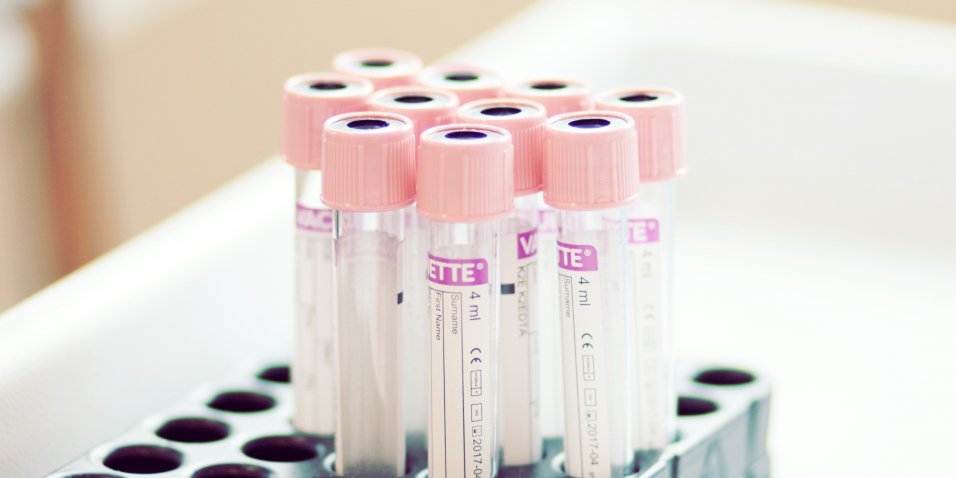Breast reconstruction surgery means meticulous craftsmanship by experienced surgeons
Reconstructing a removed breast is part of the treatment path of many breast cancer patients. The goal of the surgery...
Read moreMon–Thu 8–18, Fri 8–16

Docrates Cancer Center makes use of the knowledge of both the human genome and the cancer genome in its treatments. At Docrates, extensive molecular diagnostics and specialist meetings discussing treatments based on gene diagnostics are an essential part of drawing up a treatment plan.
Docrates has several different genetic and other tests in its disposal to get more information about the effectiveness of medical treatments. The tests can also help to determine the primary site of the cancer in situations where a metastatic cancer is diagnosed without an obvious primary tumor.
The tests may also provide further information when assessing a prognosis for the cancer. The tests are done using tissue, blood or saliva samples.
The CMI test specifies a large number of factors, both genes and structures found on the surface of cancer cells or in cancer tissue, i.e. biomarkers, using a sample taken from a tumor. The test result can be helpful in choosing the drug therapy in situations where there is no obvious research-based treatment option available.
Read more: carismolecularintelligence.com.
The Monitoring solution test is carried out in two phases. The first test specifies a large number of factors, both genes and structures found on the surface of cancer cells or in cancer tissue, i.e. biomarkers, using a sample taken from a tumor. The test result can be helpful in choosing the drug therapy in situations where there is no obvious research-based treatment option. For the second test, a blood sample is taken and used to analyse genes based on the findings of the OncoDNA test. The test provides information on all metastases – not only the one the tissue sample was taken from. If the tissue sample was taken during an earlier phase of the illness, the test also provides information about the changes that have taken place in the expression of genetic defects in the intervening period. The Monitoring test can, when repeated during the treatment or when a new treatment is being planned, be used to detect changes in the genetic defect profile, which can provide more information for planning the new treatment. Read more: oncodna.com/distributors.
The Oncotype DX test is used when planning adjuvant drug therapy for breast cancer, in situations where it is judged that chemotherapy could be discontinued without a negative effect on the prognosis. The test is done using a tissue sample taken from the breast tumor.
Read more: breast-cancer.oncotypedx.com/en-GB/Patient-Invasive.
FoundationOne CDx analysis is used to analyse 324 genes associated with cancer. The analysis is very comprehensive because, unlike many other tests, FoundationOne surveys the whole of the genes that are being analysed and detects all types of mutations, even the rare ones.
FoundationOne Liquid CDx in turn is a so-called liquid biopsy analysis where a blood sample is used to analyse 324 genes of a tumor’s DNA found in the bloodstream. The liquid biopsy method is particularly useful if it is not possible to obtain a normal tissue sample from the tumor or when the aim is to monitor the patient’s response to targeted drug therapy. A report is produced for the physician’s use based on the detected mutations. This report details which approved targeted drugs or clinical drug trials could be suitable for the patient. Read more: foundationmedicine.fi, syovangeenit.fi
A comprehensive test report by the laboratory is prepared in connection with all the tests. It is important to carefully go through the test results with your treating physician. This ensures that the interpretation of the test results is correct and the measures taken after the test results are appropriate.
If You like to know more about molecular profiling, please call our customer service +358 10 773 2010. We are here for You!

Gene profiling is a new method for examining the characteristics of cancer tumors, which is currently useful in the development of a treatment plan for one in five cancer patients, assesses Juha Kononen, Chief Clinical Director at Docrates Cancer Center. Gene profiling, which is used to identify the cancer genome, provides more accurate information for selecting the right drug and effective individual treatment, and it can be particularly helpful for patients with non-small cell lung cancer.
Reconstructing a removed breast is part of the treatment path of many breast cancer patients. The goal of the surgery...
Read more
New forms of treatment based on molecular diagnostics enable more and more patients to completely recover from cancer, and make...

With a transaction signed on 2 September 2024, Mehiläinen has acquired Docrates Ltd, as a result of which Docrates Cancer...

On 27, August 2024, the Finnish Competition and Consumer Authority (FCCA) approved the merger of Mehiläinen and Docrates Cancer Center....
Contact us!
Mon-Thu 8:00-18:00, Fri 8:00-16:00
